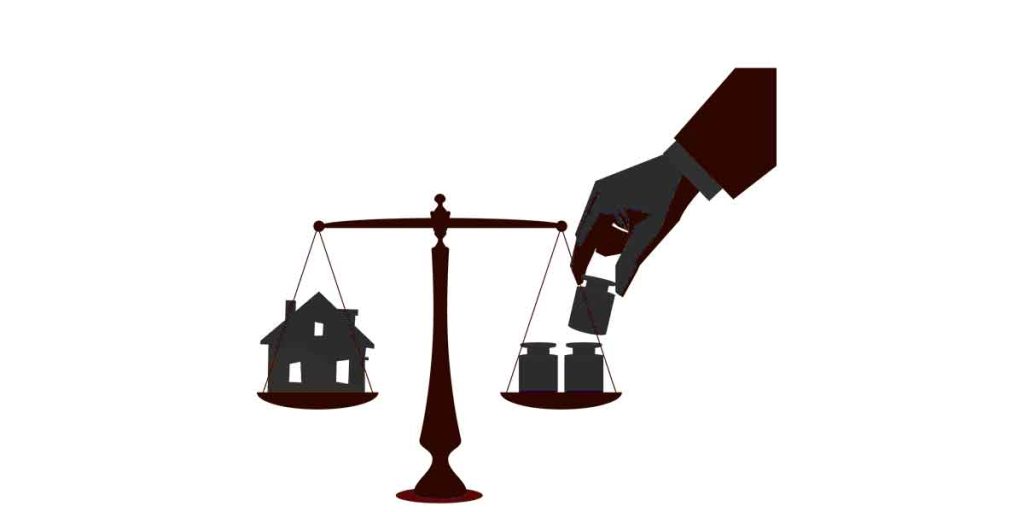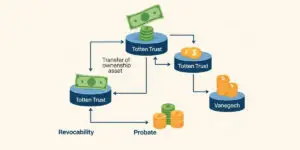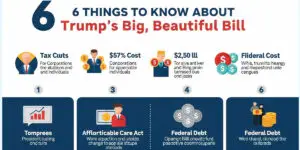As a senior, it is important that you exercise caution when making plans for your future. For instance, before you consider leveraging your home equity, it is important you find out the downsides of such action or move. Will it affect your estate plan? In this article, we’ll take a look at that question. However, let’s take a look at what a reverse mortgage as it will be instrumental in understanding the question better.
What is a reverse mortgage?
A reverse mortgage is a type of loan that allows homeowners above the age of 62 convert part of their home equity into cash. A reverse mortgage is ideal for those who have paid off their mortgage. In addition, it is for those who want to augment their retirement funds.
How does it work?
A reverse mortgage works in a simple way. It uses a part of your home equity to first settle your existing mortgage on the home, that is, if you still owe one.
Like the typical mortgage, you are not supposed to make monthly payments on the reverse mortgage as the loan balance doesn’t become due until the final borrow relocates from the home, dies, fails to pay taxes or insurance, or decides not to maintain the home.
While you aren’t required to make monthly payments, doing so is a good idea as it could cut down your monthly interest or stop it from accumulation. If you decide not to make monthly payment on the loan, interest for that month will be included to the overall loan balance.
After settling your current mortgage, you’re your reverse mortgage lender will pay you any leftover proceeds from your new loan. If you are the dole owner of your home, you’ll get all the proceeds from the loan as you have zero balance to pay at first.
As the owner of the home, you get to decide how you want the proceeds to be paid.
Can a Reverse Mortgage Affect Estate Planning?
Of course a reverse mortgage can affect your estate plan in a few ways. You See, to receive a reverse mortgage you must be 62 or older and you must:
- Have complete ownership of the home
- Occupy the home as your main residence
Reverse mortgage works in a simple way: you receive a lump sum payment, a monthly payment, or a home equity line of credit as proceeds of the loan. In return, the lender will assess interest and will demand payment of the loan if specific events take place. These events are:
- Sale of the house or title transfer
- The borrower no longer uses the home as main residence for 12 straight months or more; or
- The borrower fails to remit proper try taxes or meet other upkeep requirements
Upon the death of the borrower, the lender will take possession of the home. The borrower’s estate will not include the home’s value. If there exist any leftover equity in excess of the reverse mortgage amount, it goes to the borrower’s heirs. This equity is considered as part of the estate for tax reasons.
When considering whether to take out a reverse mortgage, consider whether you may relocate to a different main residence (like a retirement home or long-term care facility) at some point moving forward. The loan will have to be paid after you relocate, and you might not be able to afford repayment and interest.
If you choose to take out the mortgage, ensure you remain in your house. In addition, you cannot take out a reverse mortgage on a vacation or second home. The home must be your main residence.
Further, consider whether your children want to retain the house after you death. With a reverse mortgage, they would have to settle the loan balance, either by refinancing or with another method. Aside from settling the loan balance, they might also decide to sell the home. However, before doing so, they would need the go-ahead of the lender and would have to make a very fast sale, often losing value.
But, if the home sells for less than the loan amount, then the heirs don’t have to pay the difference (this is regarded as non-recourse loans). Also, heirs don’t have to pay taxes on the sale proceeds when the home is subject to reverse mortgage.
Contact our office if you have questions regarding a reverse Mortgage, or if you need the help of an attorney in setting up a reverse mortgage. Our attorneys are experienced and versed in matters reverse mortgage and can help in ensuring that it doesn’t affect your estate plan significantly.









